The board role in climate action
- the critical role of boards in driving climate action
- the business case for addressing climate risks and opportunities for economic growth through innovation
- and the vital responsibility of NEDs and boards in steering the transition through governance with robust oversight and effective reporting.
Featured content
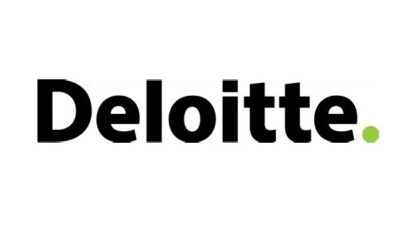
Watch: Bringing climate change onto the Board agenda
Deloitte introduces the frameworks that exist to help boards assess and monitor their governance of climate- related risks and opportunities.

The Chairperson’s insights into climate action
The Chairperson’s Insights into Climate Action provides a summary of highlights from interviews with 16 members of the World Economic Forum’s Community of Chairpersons on the topic of climate action.

Seizing the business opportunities of net zero with Emily Shuckburgh and Simon Carter
Two leading voices on tackling climate change from UK business and academia explore the opportunities the net zero transition is presenting to organisations.

How Extreme Weather Caused by Global Warming is Driving New Investment Risks
Due to improvements in the ability to trace losses from extreme weather events back to emissions, climate-related litigation risks are increasing at many companies. How does loss attribution work, and what are the implications for investments?
Blog articles
View all
How does the 2024 SEC Climate Disclosure Rule Impact Your Board?
This article from the Climate Governance Initiative, written 5 September 2024, provides an overview of the U.S. Securities and Exchange Commission (SEC) climate disclosure rule.
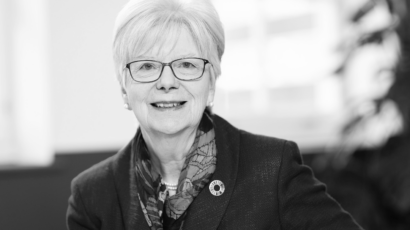
Chapter Zero FT campaign: resonance and achievement
At the close of Chapter Zero’s six-week campaign in the Financial Times, Julie Baddeley, Chair, reflects on the growth in board attention on climate since Chapter Zero was established in 2019, and how well the messages in the ads have resonated with members and non-members alike.

Climate action: a fiduciary responsibility for NEDs
Understanding the impact of climate change and addressing it is a fiduciary responsibility for NEDs, says Chapter Zero Fellow Laurel Powers-Freeling. So, they must own it.
Case studies
View all
The Chairperson’s insights into climate action
The Chairperson’s Insights into Climate Action provides a summary of highlights from interviews with 16 members of the World Economic Forum’s Community of Chairpersons on the topic of climate action.
Explainers
View all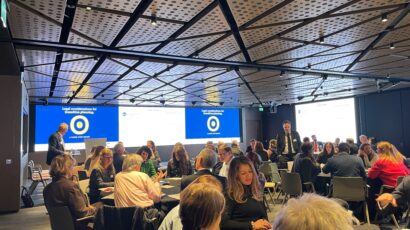
Legal considerations for transition planning: Strategic climate planning
Chapter Zero has partnered with Freshfields and the Centre for Climate Engagement to explore climate-related legal questions with non-executive directors from across the UK. The series began in September 2023 with a session providing an overview of the interaction between climate change, legal issues and business, and then focusing on legacy risks to companies, including litigation, and how they can be mitigated. Below is a summary of the second session which explored the landscape of legal issues that organisations face in daily operations and when implementing climate strategy, identifying key legal considerations at the forefront of transition planning.

Moving boards to action
In 2023, Chapter Zero partnered with McKinsey for a three-part event series that explored the impact non-executive directors (NEDs) can have in the boardroom to help their organisations achieve net zero. The second session, held on 21 September, explored how non-executive directors can navigate the net zero transition to shape and implement credible climate strategies. We have summarised below the key takeaways of this event.
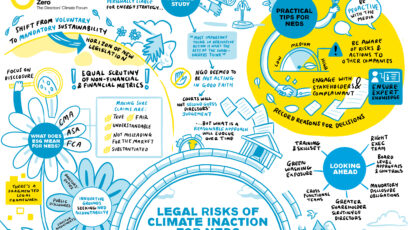
Legal risks of climate inaction
Chapter Zero and White & Case held a session for non-executive directors (NEDs) in May 2023 offering practical advice and insights on the key legal duties and obligations of NEDs in relation to climate change. Here are the key takeaways.
News
View all
Climate action. It’s not just a moral argument, it’s a business one too
Chapter Zero is not only equipping chairs and non-executive directors to lead on climate; we’re also inspiring them to be bold. Climate action is not just a moral argument – it’s a business one too.

COP26: Climate Governance Initiative rallies board directors
Boards must put climate transition at the heart of corporate strategy, says the Climate Governance Initiative – an international network of more than 100,000 board directors that includes Chapter Zero.
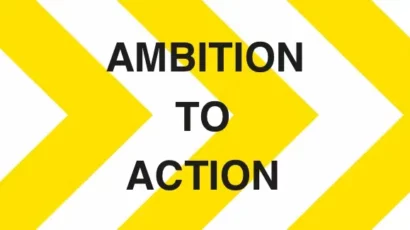
Ambition to action: our FT series finale
It’s time to make net zero a reality – with COP26 imminent the conversation is turning from ambition to action. We focus on the power of the boardroom in the finale of our Financial Times advert series.
Reports
View all
EY: How boards bridge the gap between sustainability ambition and action

Changing the climate in the Boardroom
Boards are committed to addressing climate change, but knowledge and experience gaps in the boardroom may impact ability to drive future change according to this report from INSEAD and Heidrick & Struggles.

How can boards deliver net zero carbon business strategy?
A briefing prepared for members of Chapter Zero by the University of Cambridge Institute for Sustainability Leadership with Earth on Board.
Videos
View all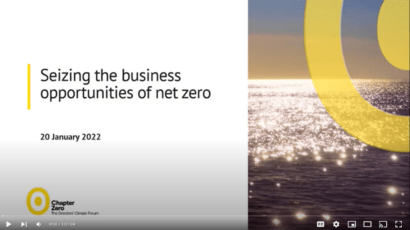
Watch: Seizing the business opportunities of net zero
This event discussed the wealth of business opportunities involved in the transition to net zero, from those created by scientific and technological developments and innovating with new business models, to building strategic partnerships and finding routes to new markets. A conversation with Dr Emily Shuckburgh, Director of Cambridge Zero at Cambridge University and Simon Carter, CEO of British Land.

Watch: Boardroom blind spots: are you addressing climate risk?
In this interactive Q&A, attendees had the chance to get practical advice for the boardroom on their climate-related questions. Catch up on the questions that were raised and the advice the panel gave. This event was organised by ICAEW in collaboration with Chapter Zero during the ICAEW Climate Summit.

Watch: The role of the board, energy transition and the harder-to-abate sectors
Lord Turner chairs the Energy Transitions Commission, a global coalition of leaders from across the energy landscape committed to achieving net zero by 2050. In this conversation, Emily Farnworth drew on his expertise to explore the role of non-executive directors in driving the low carbon transition especially in sectors where emissions are high and reducing them is particularly hard.
